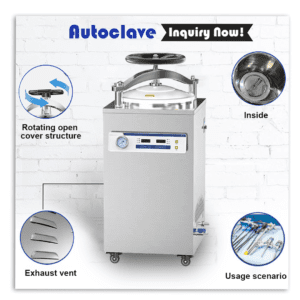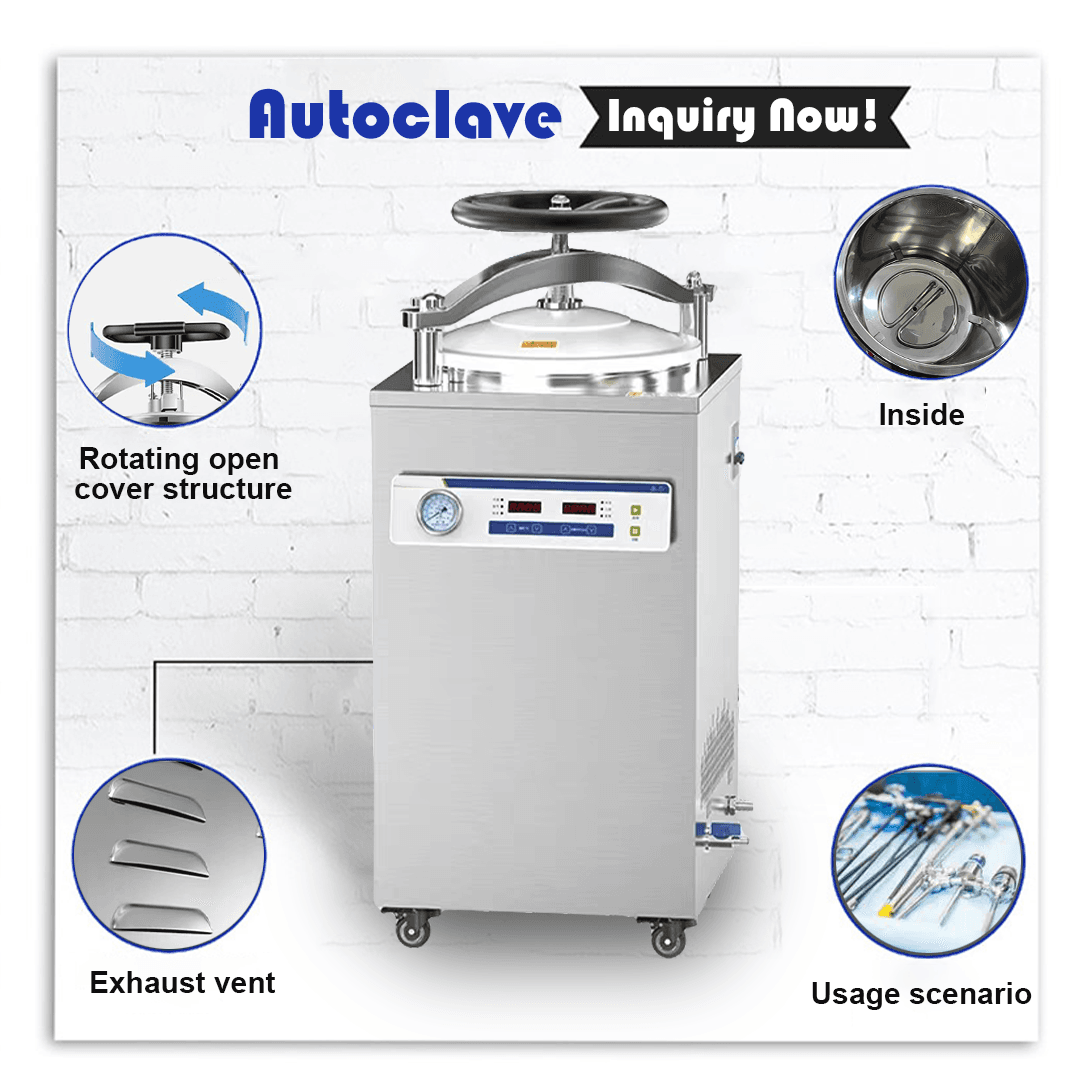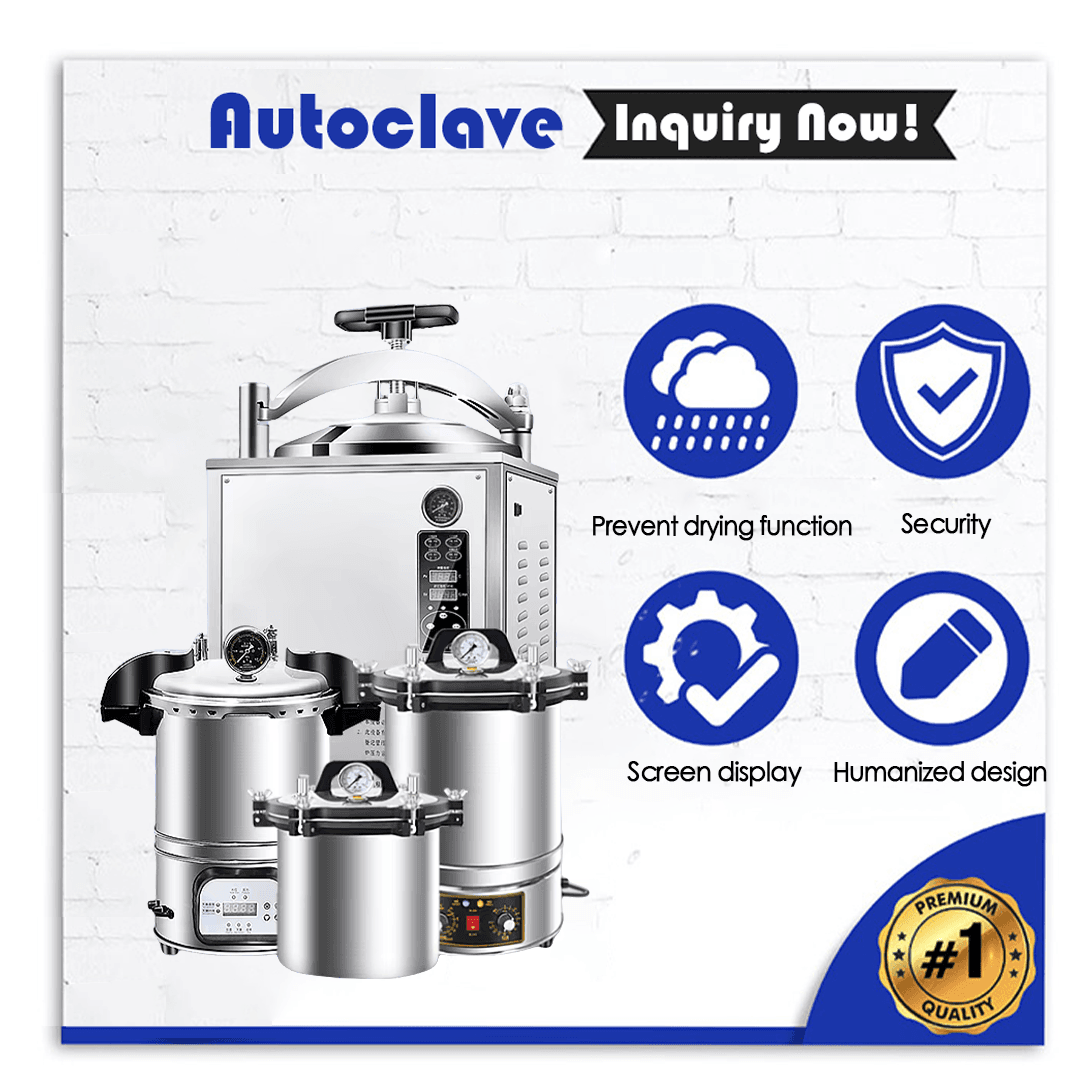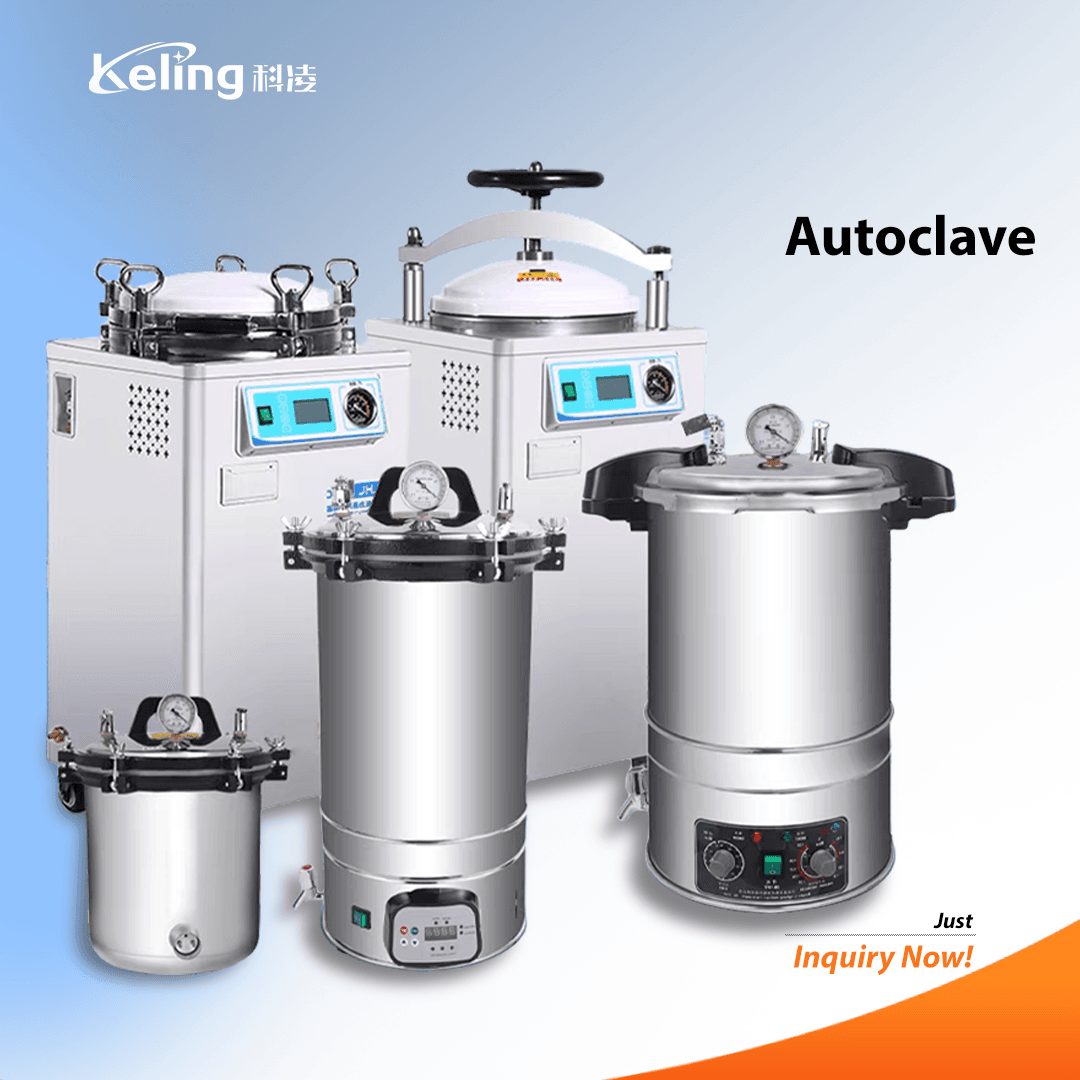
Autoclaves serve as specialized machines for sterilization through high-pressure steam which eliminates harmful microorganisms and creates ideal conditions for preparing mushroom substrate. Medical equipment distributors alongside procurement managers and agricultural suppliers who understand autoclave benefits and types for mushroom cultivation are better equipped to offer optimal solutions and make informed business decisions.
The guide covers sterilization processes in mushroom farming and examines autoclave benefits and available types for this application. For inquiries or consultations, contact us via email, WhatsApp, or visit our website.
Edible fungi production through mushroom farming requires substrate materials like sawdust, straw or compost to support growth. Substrates must remain uncontaminated to allow mushrooms to develop properly and avoid competition from unwanted microorganisms.
The process typically includes:
Preparing the substrate.
Sterilizing it to remove contaminants.
The substrate must be inoculated with either mushroom spores or mycelium during cultivation.
Maintaining controlled environmental conditions for growth.
Sterilization represents a vital process step because any small contamination causes poor mushroom yields and results in resource waste and financial loss.
The sterilization process removes bacteria and fungi along with other contaminants to guarantee an uncontaminated substrate essential for mushroom growth. The absence of proper sterilization allows harmful microorganisms to dominate over mushroom spores which results in unsuccessful cultivation practices.
The sterilization process guarantees substrate purity by removing all competing microorganisms.
A perfect environment for mushroom spores to flourish is created through this process.
Enhances production by diminishing the chances of crop failure.
Autoclaves stand as the preferred method of sterilization for mushroom cultivation among multiple available techniques.
Autoclaves deploy high-pressure steam to kill bacteria as well as fungi and spores. The sterilization process ensures absolute substrate purity which creates an optimal environment for mushroom spores to thrive without competition.
Autoclaves sterilize the substrate which provides an optimal setting for mushroom spores to grow. As a result of these practices mushrooms display better health while achieving faster growth rates and increased yields.
Autoclaves are engineered to process large substrate quantities efficiently which makes them optimal for commercial mushroom production operations. The consistent performance of these devices guarantees sterilization results that never vary.
Mushroom farmers find autoclaves cost-effective over time because their use leads to reduced contamination while improving yields and resource efficiency despite the high initial investment.
Batch autoclaves represent the optimal choice for operations of small to medium scale. Farmers can sterilize substrates in batches with these autoclaves while enjoying flexible operation and simple usage.
Commercial farms of large scale benefit from continuous autoclaves since they deliver superior efficiency. The design of these machines allows for continuous substrate sterilization which minimizes downtime while boosting productivity.
Several manufacturers develop custom autoclave systems to meet the particular requirements of mushroom farm operations. These machines allow for specialized design to process distinct substrates while accommodating varying volumes and sterilization cycles.
Small-scale operations and farms with limited space will find portable autoclaves to be an appropriate choice. These autoclaves maintain a compact size and simple operation while delivering successful sterilization for reduced substrate volumes.
Explore the features of mushroom sterilizer machines in our next article.
Learn how mushroom steam sterilizers work to optimize your cultivation process.
Autoclaves are indispensable tools for mushroom cultivation, offering reliable and efficient sterilization to eliminate contaminants and ensure healthy growth. Whether you are a distributor, procurement manager, or agricultural supplier, understanding the benefits and types of autoclaves can help you make informed decisions and provide the best solutions to your clients.
Investing in the right autoclave for mushroom farming not only improves yields but also enhances the overall efficiency of the cultivation process.
For expert guidance and high-quality autoclave solutions, feel free to contact Keling Medical:
Sterilization eliminates harmful microorganisms from the substrate, ensuring that mushroom spores can grow without competition. This leads to healthier mushrooms and higher yields.
Batch autoclaves, continuous autoclaves, custom-built autoclaves, and portable autoclaves are all suitable for mushroom cultivation, depending on the scale of the operation.
Autoclaves use high-pressure steam to sterilize substrates, killing bacteria, fungi, and spores. This creates a clean environment for mushroom spores to grow.
Yes, while the initial investment may be high, the long-term benefits of improved yields, reduced contamination, and saved resources make autoclaves a cost-effective solution.
You can contact us via email, WhatsApp, or visit our website for more information and expert advice.
For inquiries or to explore our range of autoclaves, don’t hesitate to contact Keling Medical:
Email: inquiry@shkeling.com
WhatsApp: +8618221822482
Website: https://autoclaveequipment.com/

Sterile conditions remain fundamental in dental practices to protect patients while meeting health regulatory standards. Dental clinics rely on autoclaves to sterilize their instruments and equipment which eradicates dangerous microorganisms.

Maintaining sterile conditions for dental instruments and equipment remains essential to protect patients and comply with health standards. Dental sterilizers serve as essential equipment that removes dangerous microorganisms from dental

The dental field requires sterile environments to ensure patient safety and to meet health regulation standards. Dental autoclaves serve as dedicated sterilization machines that destroy harmful microorganisms on dental equipment

The healthcare and manufacturing industries require sterile environments to ensure safety and meet industry standards. Industrial autoclave machines serve as sophisticated sterilization devices which use high-pressure steam to sanitize medical

Maintaining a sterile environment is essential for safety and regulatory compliance in healthcare and manufacturing industries among others. Industrial autoclaves represent sophisticated sterilization systems that utilize high-pressure steam to eradicate

The healthcare sector demands efficient sterilization methods above all else. Large autoclaves maintain the sterility of medical instruments and equipment by eliminating dangerous microorganisms. These devices manage substantial loads of